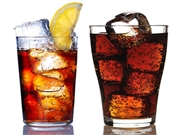- Could Your Grocery Store Meat Be Causing Recurring UTIs?
- Are You Making This Expensive Thermostat Error This Winter?
- Recognizing the Signs of Hypothyroidism
- 10 Strategies to Overcome Insomnia
- Could Artificial Sweeteners Be Aging the Brain Faster?
- Techniques for Soothing Your Nervous System
- Does the Water in Your House Smell Funny? Here’s Why
- Can a Daily Dose of Apple Cider Vinegar Actually Aid Weight Loss?
- 6 Health Beverages That Can Actually Spike Your Blood Sugar
- Treatment Options for Social Anxiety Disorder
To Cut Down on Boozing, Offer Other Choices: Study

There’s a simple way to limit your guests’ boozing: Give them plenty of alternatives.
A British study finds that people are more likely to choose alcohol-free options if they outnumber boozy choices.
There were more than 800 people in the study. When presented with eight drink choices in an online questionnaire, participants were 48% more likely to choose a nonalcoholic beverage when the number of those offered rose from four to six.
When the number fell from four to two, participants were 46% less likely to go alcohol-free, according to the study published May 5 in the journal BMC Public Health.
“Previous research has shown that increasing the availability of healthier food options can increase their selection and consumption relative to less healthy food,” said corresponding author Anna Blackwell, a senior research associate at the University of Bristol.
“To our knowledge, this is the first study to demonstrate that increasing the availability of nonalcoholic drinks, relative to alcoholic drinks in an online scenario, can increase their selection,” Blackwell said in a journal news release.
Worldwide, alcohol use is one of the top five disease-risk factors, she pointed out.
When most choices were nonalcoholic, 49% of participants chose a nonalcoholic drink, compared with 26% when most choices contained alcohol, researchers said.
All the participants were regular drinkers. Their average age was 38.
Blackwell said the market for alcohol-free beer, wine and spirit alternatives is still small but it’s growing and improving beverage selection. It’s also an opportunity for sellers.
“Many licensed venues already offer several nonalcoholic options but these are often stored out of direct sight, for example in low-level fridges behind the bar,” she said. “Our results indicate that making these nonalcoholic products more visible to customers may influence them to make healthier choices.”
Blackwell said doing so could provide a way for venues to reduce alcohol consumption without losing money.
More information
The U.S. National Institute on Drug Abuse has more about alcohol.
Source: HealthDay
Copyright © 2026 HealthDay. All rights reserved.










